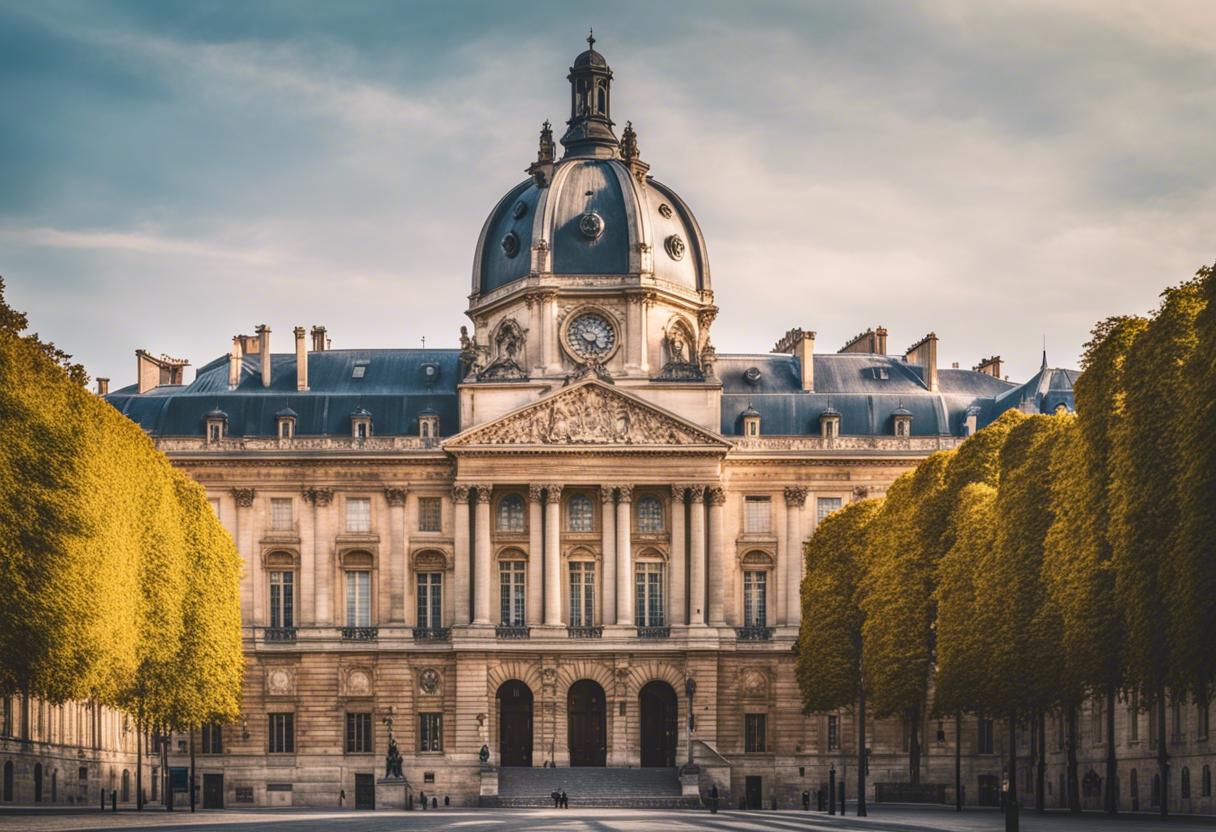Emmanuel Macron, the President of France, once again visited the amphitheatre at Sorbonne University, six years post his pivotal talk on Europe’s future. This time, though, Europe was in a different state. Macron, who became France’s president in 2017, had initially envisioned the European Union’s reform with unwavering optimism. However, his recent speech had a more sombre tone, cautioning about the potential “demise” of Europe if it failed to establish itself as a self-reliant power.
In the noteworthy Paris university last Thursday, Macron conveyed to the audience of hundreds that Europe must address vital security and economic threats. He cautioned, “The Europe of today is not invincible… Its survival rests solely on our decisions.”
His nearly two-hour talk admitted that the continent had been excessively dependent on Russia for energy and the U.S for defence. He advocated for a ‘powerful Europe’ that secures its own safety.
Macron expressed that the recurrent wars on European territories, initiated by a nuclear-powered nation, alters the entire scenario. He emphasized Europe’s security depending on the failure of Russia’s aggressive war against Ukraine.
He further proposed fostering deep-rooted strategic connections between Europe’s national armies. Macron suggested that this tighter integration of defence alliances might occur independently of NATO, the western military coalition involving the U.S.
Not only were Europe’s democratic norms and values under risk, but so was its economic footing in comparison to China and the U.S, warned Macron. His proposal for the union to increase its monetary reserves and expenditures may likely unsettled Germany. In terms of concrete policy suggestions, he advocated for the European Central Bank to assume a broader role.
Additionally, Macron recommended instigating a higher taxation on the profits multinationals earned at the location of their operation, rather than their headquarters. Given the high number of tech giants established in Dublin, Ireland is likely to strongly protest this proposition.
Some believe that Macron’s decision to revisit the Sorbonne to give a significant lecture may be an attempt to refresh a faltering campaign for the European Parliament elections, scheduled for early June. Opposition towards his proposed reforms, particularly the increase of the retirement age to 64, and the substantial anti-government ‘yellow vest’ protests, have marred Macron’s political journey.
Around the same time in the previous year, polling placed Macron’s Ensemble slightly below Marine Le Pen’s far-right party, National Rally. The gap has since widened, with the current polls showing 31% support for the far-right party compared to the 18% backing for Ensemble. The charismatic 28-year-old Jordan Bardella, a National Rally MEP, is leading the far-right’s campaign and has become a new, well-liked figure on the French political stage.
German Chancellor Olaf Scholz responded to Macron’s speech on what might be previously known as Twitter, stating that he welcomed the “good ideas” and confirmed the mutual desire of France and Germany for a robust Europe. Meanwhile, Le Pen accused Macron of succumbing to a “childish illusion” for years and compromising French sovereignty over immigration, debt, and defence. Left-wing French MEP Manon Aubry criticised Macron’s legacy, defining it in three terms: “arrogance, inequality, and hypocrisy.”
Macron’s stance on Europe’s independence from the US was unmistakably defined, said Sébastien Maillard, an adviser to the Jacques Delors Institute, a Paris-based think-tank. Ukraine’s invasion by Russia proved that the call for increased EU defence collaboration six years ago was appropriate.
Macron’s initial 2017 Sorbonne speech was seen as a rallying cry for a more consolidated EU, with the then-newly elected President encouraging full integration of French and German markets as well as a joint EU defence budget. According to Maillard, Macron’s recent address intended to win back the pro-European support he has since lost in France, while avoiding becoming targeted as a proponent of an EU federation by his critics.
As Macron delivered his speech, a band of students and other pro-Palestine supporters staged a protest accusing him of his controversial position on the Gaza conflict. The protest occurred near the Pantheon monument, with minor conflicts arising between the protestors and riot police. By dusk, the area had returned to normalcy, with tourists snapping photos and clicking selfies having replaced the protestors and heavy police deployment.
Only a stone’s throw away, in a bar frequented by students, the hot topic of the future of Europe was noticeably absent from young people’s conversations. One male youth, enjoying a smoke outside the bar, displayed indifference about Macron and his slew of points made in that day’s address. He openly confessed his lack of knowledge in political matters.
Further inside the dimly lit venue, a man named Fabien Duber, 38, portraying himself as a revolutionary socialist, spouted more pointed views. He painted Macron as a “capitalist representative”. He expressed deep concerns over the high income disparities characterising Paris, tagging it a city largely accessible to the high-earning populace.
In the community café where Duber volunteers, there are employees who are squatters since they can’t pay for housing. Despite their clear hands, good attire, and willingness to work, they’re forced to dwell in stairwells. In Duber’s words, “That’s Paris.”

